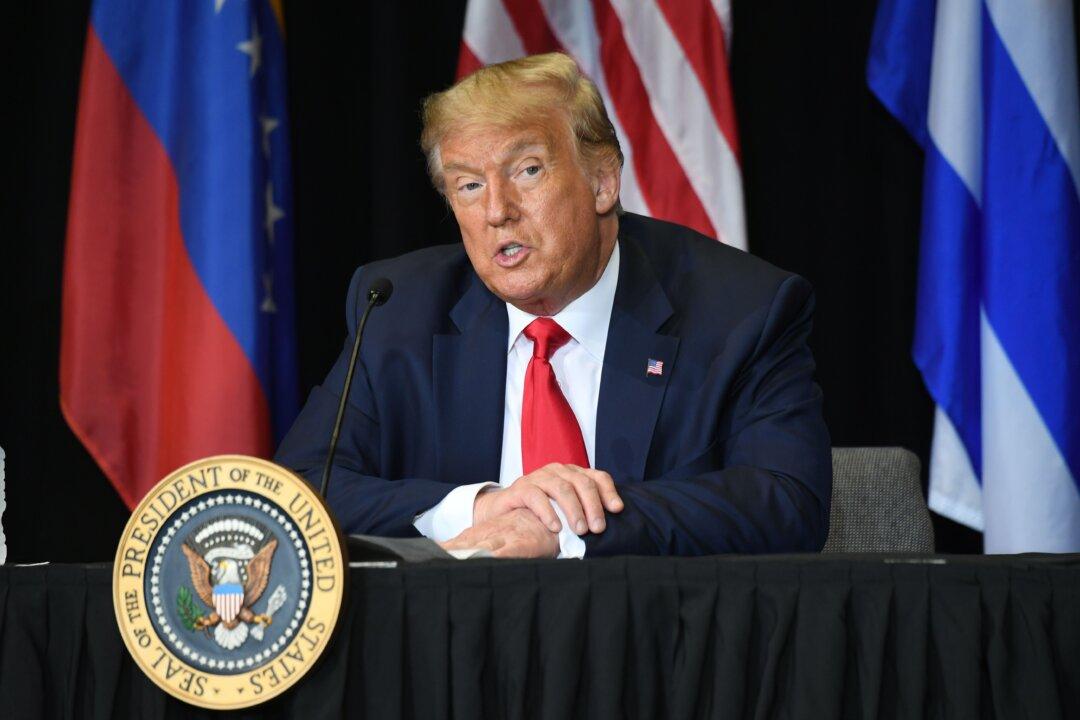President Donald Trump said on July 10 that he was not considering negotiating a “phase two” trade deal with the Chinese regime, as relations between Washington and Beijing have deteriorated over the pandemic and other issues.
Trump, asked by reporters aboard Air Force One about the possibility of a second phase trade deal, said, “I don’t think about it now,” adding that he had many other things on his mind.





